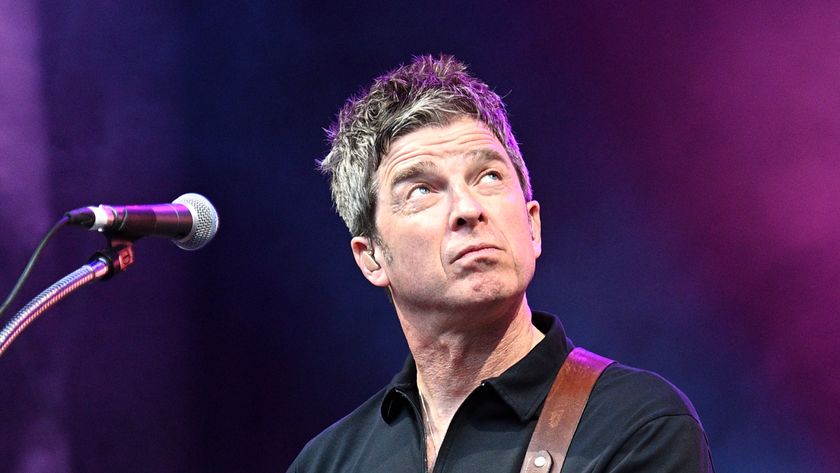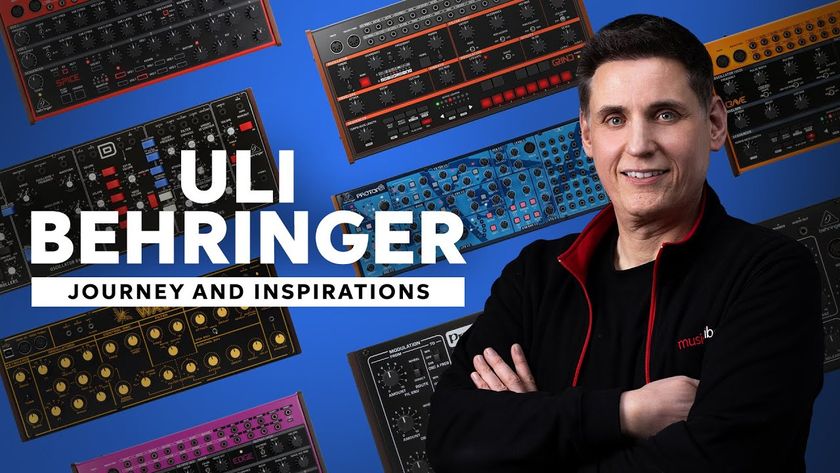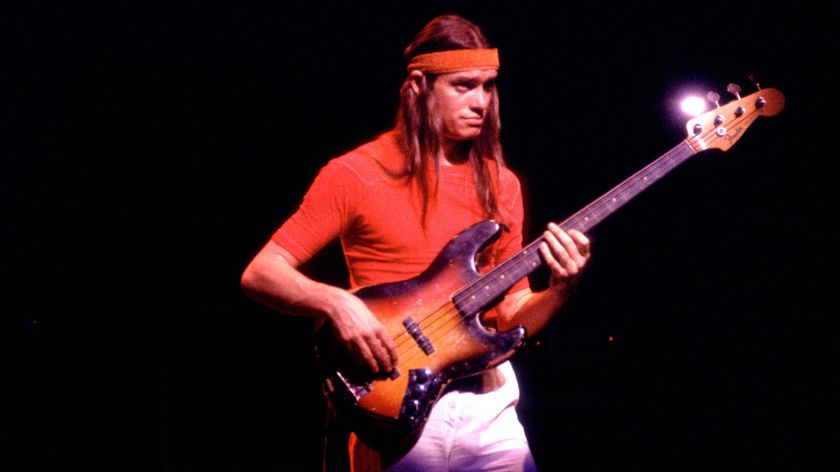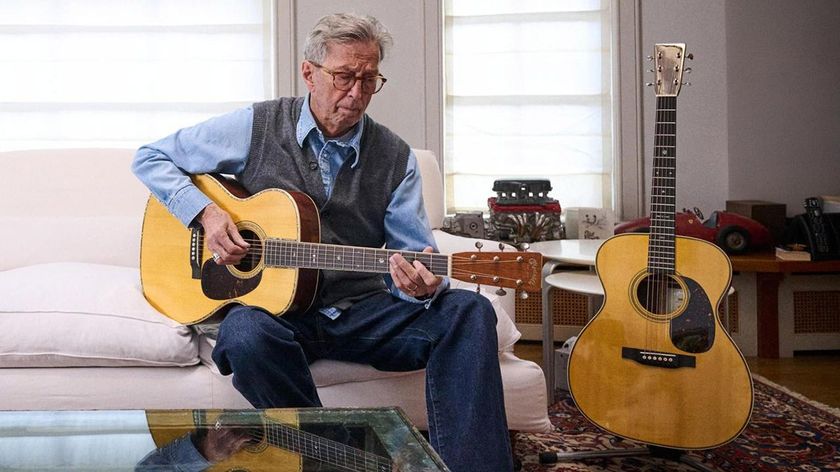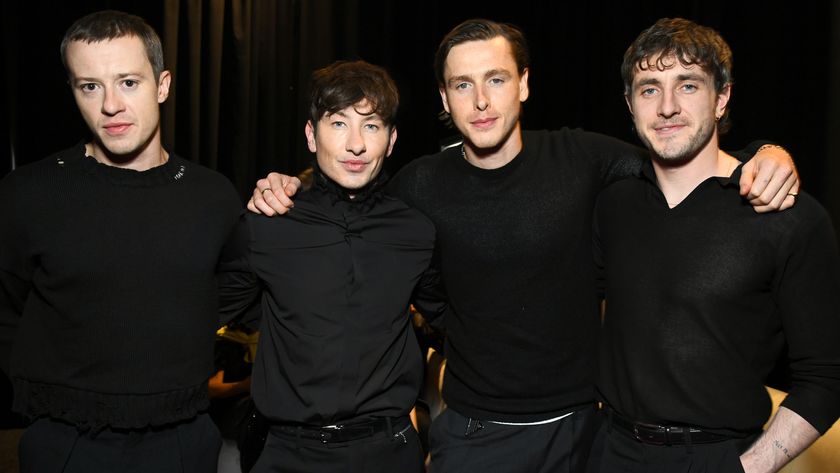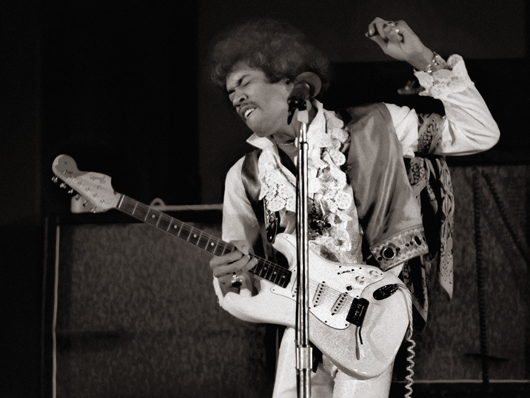
The other day, we presented The End Of A Big Long Fairy Tale, an interview with Jimi Hendrix from early 1970, excerpted from the forthcoming book, Hendrix On Hendrix: Interviews And Encounters With Jimi Hendrix by Steven Roby.
To be published 1 October by Chicago Review Press, Hendrix On Hendrix is a fascinating, must-read account of the late guitar genius. In all over 50 interviews - from print, radio and TV sources - and even court transcriptions - Jimi's own words tell the story during the time he became a cultural icon, beginning with his first interview with the UK music press (Record Mirror, 10 December 1966) to his last Q&A, conducted on 11 September 1970, just one week before his untimely passing.
You can pre-order Hendrix On Hendrix: Interviews And Encounters With Jimi Hendrix at Amazon. And you can visit Steven Roby's website to order signed, first-edition copies of the book.
We spoke with noted Hendrix historian Roby for his insights into one of the most influential pioneers of rock guitar.
When did Jimi Hendrix become a compelling figure in your life?
"That goes back to when I was 12 years old, living in San Francisco. I discovered what was then called 'underground FM rock radio,' a great station called KMPX. It was shortly after the Monterey Pop Festival in 1967, and I believe they were the first station in the country to play Hendrix, because one of the DJs said they'd just gotten this record in from England. They played something off of Are You Experienced, and it blew me away.
"They said that this guy lit his guitar on fire at the Monterey Pop Festival. I went to my local record store that was really hip, and they had English pressings. That was my first exposure - Jimi on Track Records.
Get the MusicRadar Newsletter
Want all the hottest music and gear news, reviews, deals, features and more, direct to your inbox? Sign up here.
"From that point, I convinced my parents when I was 14 year old to let me go see my first Hendrix concert at the Oakland Coliseum in 1969. The following year, in 1970, it was Berkeley, the one that was filmed and distributed as Jimi Plays Berkeley. Then we were on vacation in Hawaii, on August 1st, and it was Jimi's last American concert. For five dollars and fifty cents - an advance on my allowance, I might add - I got a floor seat about 14 rows back and saw his last, amazing American concert."
How did this book come about? Can you explain the process of obtaining and compiling the various interviews?
"I've written two books, two biographies on Jimi. The first one's called Black Gold: The Lost Archives Of Jimi Hendrix, and the second one is called Becoming Jimi Hendrix [From Southern Crossroads to Psychedelic London, the Untold Story of a Musical Genius]. The first one deals with lost recordings and projects that not many people knew about. The second one is about Jimi's R&B career, right up to the point where he gets to England in 1966.
"This book, Hendrix On Hendrix, takes up where the second book left off and includes his first press interview in 1966. In fact, the title of the article is called Mr. Phenomenon. As a hardcore Hendrix collector/archivist for the past 40 plus years, I've accumulated a lot of files and audio recordings of Jimi. I got the inspiration to put this book together after seeing another title on my publisher's list of books they have out on John Coltrane called Coltrane On Coltrane. I thought, What a unique concept, of listening to the man's words in chronological order."
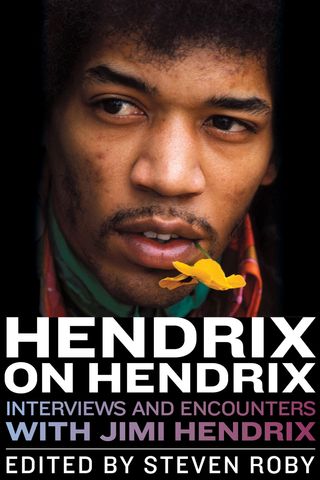
In amassing the interviews and reading through them, what did you come to learn about Jimi in how he was handling fame and trying to grow as an artist?
"To get the transcriptions right, especially with the audio interviews, I listened intently to them day after day after day. I could feel a bit of a fragility in Jimi. In early '67 interviews, he's outgoing, fun, carefree - he'd just be a goofball in the interviews and have a blast. But you start to see a shift in late '68 and 1969. Jimi starts to get more serious, and the tone of his voice really starts to change. It's very evident in the final interview. It was a very different experience, just going over all of these audio recordings, as opposed to listening to his music - a different person starts to emerge."
Rock journalism was still in its infancy during Jimi's career. There wasn't a grand history to draw upon. Some of the people who were interviewing Jimi probably weren't that familiar with his music.
"There's a variety of different sources I used. Back then, as you know, we didn't have the internet, and it took a while for information to get out. The sources used are from mainstream media - for example, Time magazine and Life - and then you have the interviews from the underground press, where they would ask entirely different questions of Jimi. Then you had the teen pop magazines that would do splashy interviews and pictures of Jimi in 1967, but the interview was in 1969!
"So it's all over the board. If you kind of get past that and have that understanding and just focus on Jimi's responses, that's the key to the whole book."

Hendrix performs at the Isle Of Wight Festival, 30 August 1970. © Hulton-Deutsch Collection/CORBIS
It's hard to have a true window into what he was thinking, but is it your guess that Jimi enjoyed the interview process?
"I think he did. What's kind of interesting is how his management pretty much let anybody in to have a private hour with him without any solid press credentials. There's one interview in the book with a woman named Nancy Carter, who was going to USC, doing her Master's thesis on the counter culture and Hendrix, and they gave her an hour with Jimi in his hotel room in Los Angeles. He opens the door in just a kimono.
"There were a few things working against the interview. Nancy had some hearing problems, and Jimi didn't know about that, so he's kind of getting frustrated with her asking similar questions and her kind of interrupting him. But I think that's unique.
"There's an interview with an FM DJ out here in San Francisco, and he wants to get Jimi to do a station ID, but Jimi's reluctant. The guy is trying to be hip, and he's asking Jimi these questions, and Jimi is like, 'Man, I'm not going that direction. Here's what I want to say.'"
What's your favorite interview of the collection, and why?
"Wow, that's really hard to answer - there's so many. I really like, for the journalism aspect, the Eye magazine article. It's quite lengthy, it covers a variety of things, and it's well written.
"I enjoyed the interview with John Burks and Baron Wolman in early 1970. They were trying to get the original Experience back together. The Band Of Gypsys had broken up, an experimental R&B/funk fusion group that Jimi put together in the latter part of 1969. Jimi's manager kind of forced him to get the original Experience of Mitch Mitchell and Noel Redding back together so they could get on the task of getting back to the hits and successful albums.
"There was no studio album in 1969 other than a greatest hits package. You can kind of feel that turmoil of where the group might have gone but where Jimi wanted to go creatively. There's so many. It's really a fun read."
Joe is a freelance journalist who has, over the past few decades, interviewed hundreds of guitarists for Guitar World, Guitar Player, MusicRadar and Classic Rock. He is also a former editor of Guitar World, contributing writer for Guitar Aficionado and VP of A&R for Island Records. He’s an enthusiastic guitarist, but he’s nowhere near the likes of the people he interviews. Surprisingly, his skills are more suited to the drums. If you need a drummer for your Beatles tribute band, look him up.

“I didn’t even realise it had synthesizer on it for decades”: This deep dive into The Beatles' Here Comes The Sun reveals 4 Moog Modular parts that we’d never even noticed before
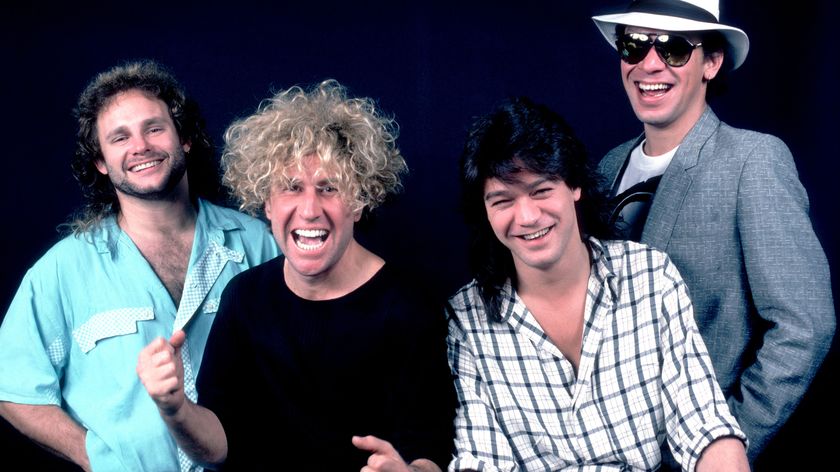
“I saw people in the audience holding up these banners: ‘SAMMY SUCKS!' 'WE WANT DAVE!’”: How Sammy Hagar and Van Halen won their war with David Lee Roth

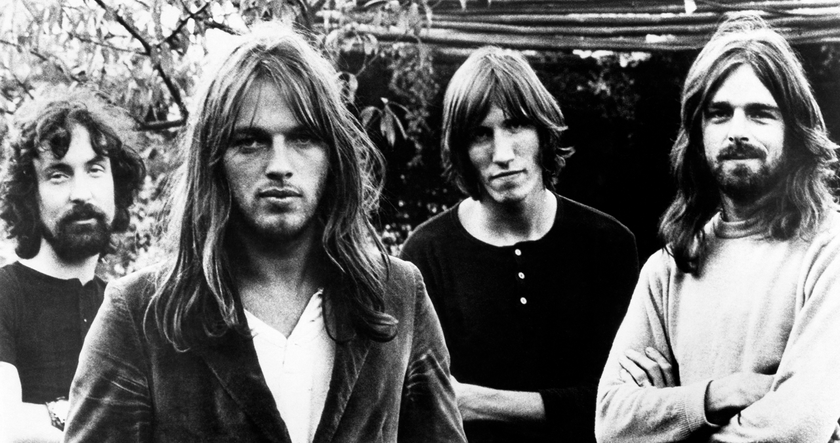

![Chris Hayes [left] wears a purple checked shirt and plays his 1957 Stratocaster in the studio; Michael J. Fox tears it up onstage as Marty McFly in the 1985 blockbuster Back To The Future.](https://cdn.mos.cms.futurecdn.net/nWZUSbFAwA6EqQdruLmXXh-840-80.jpg)
